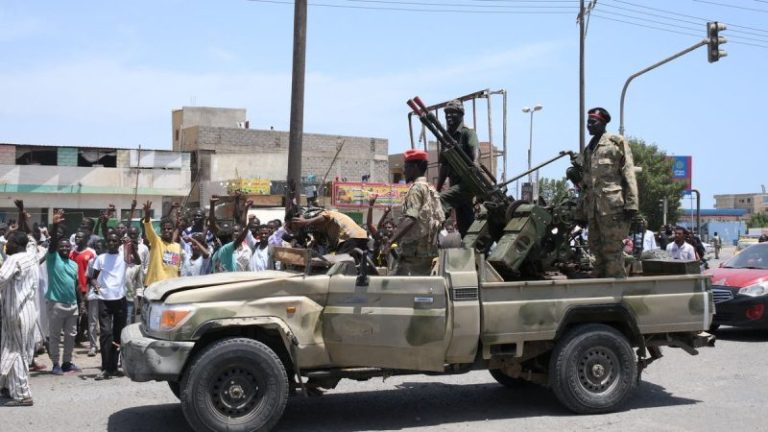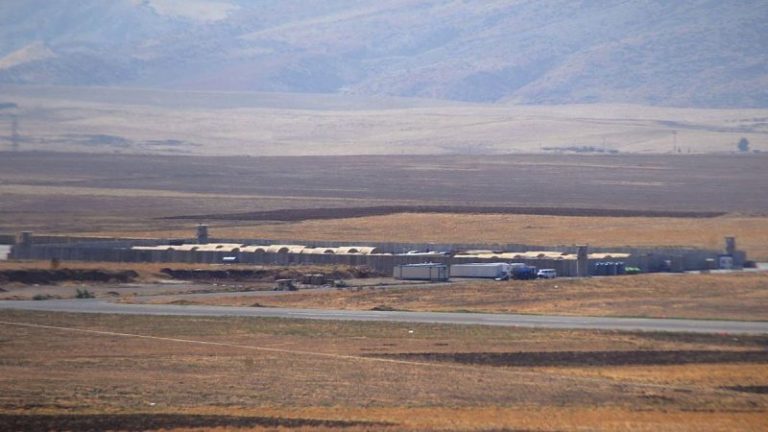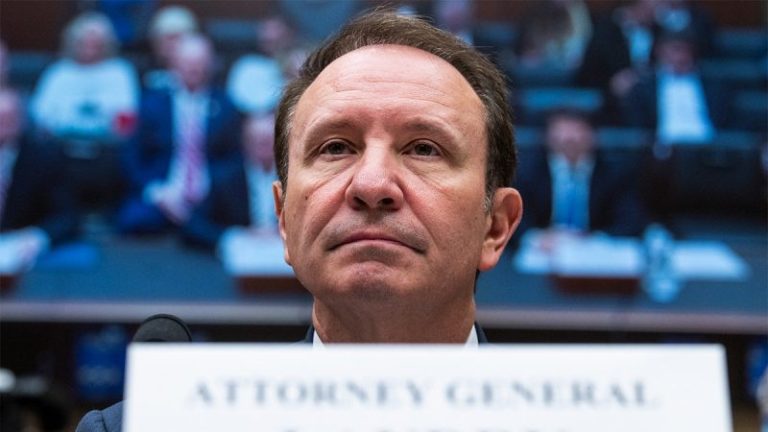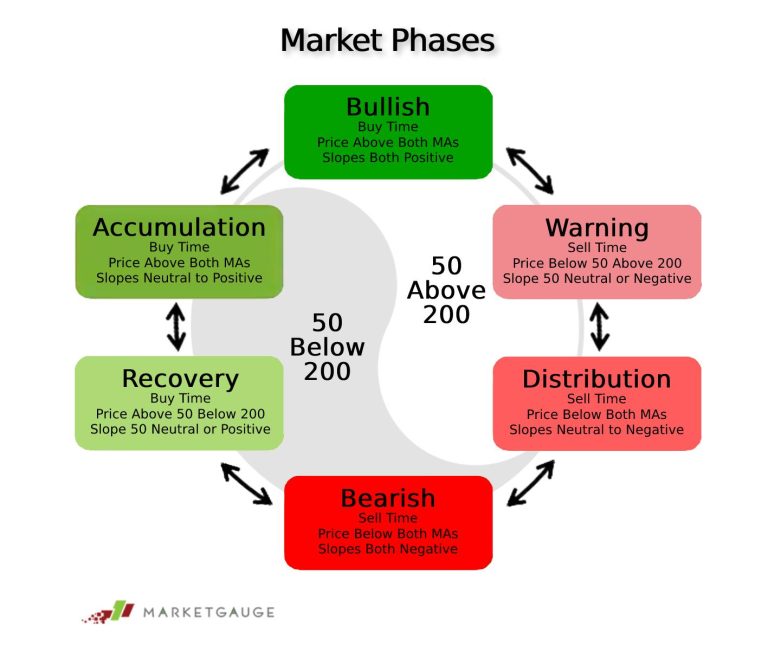JOHANNESBURG – New misery on a biblical scale has been forced upon the people of Sudan this week as the Biden administration is accused by some of standing ‘idle.’ Amid the war, Russia’s Wagner Group continues to mine and export Sudanese gold to finance the Kremlin’s war against Ukraine.
Rebel militia from the Rapid Support Force or RSF, are terrorizing residents and looting everything they can lay their hands on in the regional capital of Wad Madina, according to eyewitnesses who have talked to Fox News Digital.
At least a quarter of million people have fled the area in the past few days, on top of the six million who have already had to quit their homes, according to U.N. sources.
Many of these have only recently run from fighting in the capital, Khartoum, to a place they thought they’d be safe.
‘This is a terrible and traumatic turn of events,’ Mathilde Vu, advocacy manager for Sudan for the Norwegian Refugee Council, told Fox News Digital. ‘Wad Madani has been a safe haven for 84,000 people who fled Khartoum just a few months back.’
‘Many of them have lost everything already: their homes, their assets, sometimes even their relatives. Now they are living this nightmare again – only this time, with even less resources and abilities to flee.’
‘Sudan is a state that has collapsed,’ intelligence analyst Jasmine Opperman told Fox News Digital.
Secretary of State Antony Blinken earlier this month accused the two sides in Sudan’s conflict, the government’s Sudanese Armed Forces (SAF), and the rebel Rapid Support Forces (RSF) of war crimes, and singled out the RSF for committing ‘crimes against humanity and ethnic cleansing.’
Both sides, he added, ‘have unleashed horrific violence, death and destruction across Sudan.’
‘Across Sudan,’ Blinken continued, ‘the RSF and allied militias have terrorized women and girls through sexual violence, attacking them in their homes, kidnapping them from the streets, or targeting those trying to flee. In haunting echoes of the genocide that began almost 20 years ago in Darfur, we have seen an explosion of targeted violence against some of the same survivors’ communities.’
Over 12,000 have been killed since the conflict began April 15, according to the U.N. Office for the Coordination of Humanitarian Affairs (OCHA).
In addition, a State Department spokesperson told Fox News Digital, Sudan has ‘one of the world’s largest displacement crises.’
‘About 5.3 million people have been displaced within Sudan,’ OCHA stated this past week, citing the International Organization for Migration Displacement Tracking Matrix. It added that about 1.3 million people crossed into neighboring countries.
‘Achieving a sustainable solution requires ending violence and resuming a civilian-owned political process to form a civilian government and restore Sudan’s democratic transition,’ the State Department spokesperson continued. ‘Our message is clear and consistent: The United States and our regional and international partners are unified in calling for the parties to immediately end the fighting in Sudan, and for the SAF and the RSF to silence the guns.’
The message may be clear, but critics say it is not being delivered with sufficient persuasion.
‘It is difficult to end such a war unless a powerful regional or international force would intervene directly,’ Walid Phares told Fox News Digital. Phares is a Washington-based foreign policy expert and secretary general of the Transatlantic Parliamentary Group. He is the author of 15 books, including ‘Iran and Imperialist Republic and U.S. Policy.’
‘But no neighboring government, Arab country, or international party was willing to partake in such a mission,’ Phares added.
‘In the era of the Ukraine war, and now since Oct. 7 and the Gaza war, literally all players are focused on their national interest and not peacemaking in a difficult and large country. Sudan is too large and too complex to digest.’
‘The Biden administration is dealing with too many crises as it is entering its election year. From today’s attacks by the Houthi Iran-backed militia against civilian ships in the Red Sea, to the Ukraine war, to the transfer of power to the Taliban, and last but not least the Gaza War, the Biden administration is perceived as weak and unable to act internationally. Thus regarding Sudan, Washington is idle, vague and seems to not intervene to stop the tragedy,’ Phares said.
Opperman agreed. She told Fox News Digital: ‘Any intervention through peace talks will merely be words on paper. Indeed, a hopeless case. There needs to be a complete rethink beyond the two leaders, the two bullets, now at play. That will take time.’
‘What is the United States doing with its sanctions?’ Opperman asked: ‘Its voice, and its influence is diminishing by the day.’
Opperman believes the leaders of both warring factions in Sudan ‘have one aspiration, and that is to become president. But we are currently looking at warlords in full force. To talk about an official Sudanese army at this point in time is a joke.’
Sudan researcher Eric Reeves also has little faith that peace talks in Saudi Arabia, in which the U.S. are involved, will bear any fruit. He is concerned that such fruit, and other food and aid, are not getting through to Sudan’s civilians. ‘The convoy routes from Port Sudan (a principal supply corridor) are even more dangerous – and thus less used – than just a few weeks ago,’ Reeves told Fox News Digital. ‘The perfect storm for large-scale famine is visible… and the international community really has not engaged in a useful way. It is an unspeakably grim outlook.’
Enter the Russians, in the shady shape of the Wagner Group, literally a combination of mercenaries and precious metal extractors.
Phares notes, ‘The Wagner group now seems to have chosen a partner in Sudan, the (rebel) RSF, complicating the situation further.’
Opperman added: ‘Wagner cannot be ignored in Sudan.’ The Wagner Group mines gold in Sudan, and exports it, with the proceeds reportedly helping to bankroll its war against Ukraine. Wagner reportedly supports the anti-government RSF and, Opperman told Fox News Digital, wants this African conflict to continue: ‘Wagner will counter any attempt at seeking a democratic consolidation within Sudan, because of the economic profits they are making from the mining industry. Ignoring darkening Sudan will be a pivotal mistake.’
Sudan is a key country for Russian President Vladimir Putin, Rebekah Koffler told Fox News Digital. Koffler is president of Doctrine & Strategy Consulting, and a former Defense Intelligence Agency officer. ‘Moscow views Sudan as the key ‘gate to Africa.’ Gold mining and the establishment of a Red Sea naval base at Port Sudan are top priorities.’
‘Now that Iranian proxies have turned the Red Sea into a battlefield disrupting maritime traffic through the Suez Canal,’ Koffler continued, ‘Putin wants to make sure Russia is positioned well in this geographic choke point.’
‘Putin is not necessarily pulling the strings in Sudan, but Russia is taking advantage of the conflict and is fueling it to some extent, by flowing new weapons, riot gear and fighters, through the Wagner Group.’
‘Wagner is not acting on its own’, claims Koffler. ‘They are a proxy force of the Russian government that directs their activities at the strategic, but not tactical, level. Wagner is effectively executing Putin’s ‘Great Game’ in Africa.’
Meanwhile, many of the ordinary men, women and children of Sudan are homeless – and hungry. ‘The humanitarian appeals for Sudan are largely unfunded,’ the Norwegian Refugee Council’s Vu told Fox News Digital, ‘After nine months of constant violence and displacements, we are reaching the limits. The international solidarity must step up and fund the response.’
Opperman is pessimistic about the future: ‘Sudan, yet again, is repeating its own history and inclination to destroy itself by means of warlords.’
As a solution, Phares believes the U.S. should move firmly, and now. ‘Washington should have at least moved to stop the most recent massacres in West Darfur perpetrated by the old Jihadi Janjaweed, who were responsible – according to the U.N. – of a genocide against Black Africans in 2004-2005,’ he said. ‘The U.S. should lead a peace force, enter Geneina, the capital of Darfur, and establish a safe zone.’
However, Phares has reservations: ‘One could believe that short of a massive change in U.S. foreign policy by early 2025, the Sudan conflict will still be raging, and possibly all other tensions in the region as well. One more time, it is a presidential election in the U.S. that could impact Sudan and the world.’
This post appeared first on FOX NEWS










